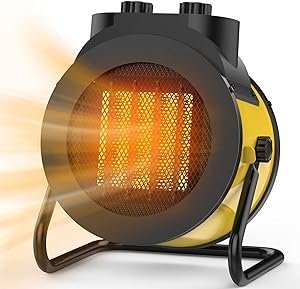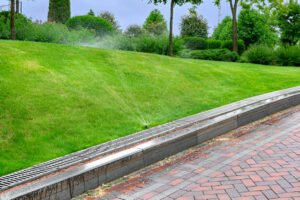Camping is a beloved pastime that allows us to reconnect with nature and escape the hustle and bustle of city life. However, when the temperatures drop, staying warm and comfortable in a tent can become a challenge. This is where tent heaters come into play, providing a reliable and efficient way to maintain a cozy environment during your outdoor adventures.
Tent Heaters
A tent heater is a portable heating device designed specifically for use in tents, campers, and other outdoor shelters. These heaters come in various forms, including propane, electric, and battery-powered models, each with its own set of advantages and considerations.
Benefits of Using a Tent Heater
- Warmth and Comfort: The primary benefit of using a tent heater is the ability to maintain a comfortable temperature inside your tent, even in chilly or freezing conditions. This can make a significant difference in your overall camping experience, ensuring a good night’s sleep and preventing discomfort caused by cold temperatures.
- Extended Camping Season: With a reliable tent heater, you can extend your camping season and enjoy the great outdoors beyond the warm summer months. Whether you’re winter camping, early spring camping, or hitting the trails during shoulder seasons, a tent heater can keep you cozy and comfortable.
- Dry Tent Environment: Tent heaters not only provide warmth but also help reduce condensation and dampness inside your tent. This can prevent the growth of mold and mildew, keeping your camping gear and sleeping bags dry and fresh.
- Versatility: Many tent heaters are designed to be compact and portable, making them easy to transport and set up in various camping situations, from backcountry adventures to backyard camping trips.

Safety Considerations for Tent Heaters
While tent heaters can greatly enhance your camping experience, it’s crucial to prioritize safety when using these devices. Here are some essential safety guidelines to keep in mind:
Ventilation
Proper ventilation is crucial when using a tent heater, especially when dealing with fuel-burning models like propane heaters. Inadequate ventilation can lead to the buildup of carbon monoxide, a colorless and odorless gas that can be deadly if inhaled in high concentrations.
Fire Hazards
Tent heaters can pose a fire risk if not used and maintained properly. Always follow the manufacturer’s instructions carefully, and never leave a heater unattended or place it too close to flammable materials like sleeping bags or tent walls.
Fuel Storage
If using a propane or other fuel-burning heater, it’s essential to store the fuel properly and away from the heat source. Always keep fuel containers upright and in a well-ventilated area, and never store them inside the tent.
Carbon Monoxide Detectors
For added safety, consider using a battery-operated carbon monoxide detector inside your tent when using a fuel-burning heater. These detectors can alert you to dangerous levels of carbon monoxide, allowing you to take immediate action and prevent potential harm.
Tent Heater Reviews
Now that we’ve covered the basics and safety considerations, let’s explore some of the best tent heaters on the market:

1. Mr. Heater Buddy Portable Propane Heater
The Mr. Heater Buddy Portable Propane Heater is a popular and reliable choice among campers. This compact heater runs on disposable propane cylinders and features an automatic low-oxygen shut-off system for added safety. With its radiant heat output of up to 9,000 BTUs, it can effectively heat up to 225 square feet of tent space.
2. Honeywell HeatBud Ceramic Heater
For those seeking an electric option, the Honeywell HeatBud Ceramic Heater is an excellent choice. This portable and energy-efficient heater features ceramic heating elements and a cool-touch exterior, making it safe to use in confined spaces. It’s ideal for camping trips with access to electrical hookups or for use with a portable power station.
3. TIKI Catalytic Heater
The TIKI Catalytic Heater is a versatile and eco-friendly option, powered by a refillable butane canister. This heater uses catalytic conversion to produce radiant heat without an open flame, reducing the risk of fire hazards. It’s compact, lightweight, and suitable for both indoor and outdoor use, making it a great choice for tent camping, RVs, and other outdoor adventures.
4. Campy Gear Catalytic Heater
The Campy Gear Catalytic Heater is another excellent catalytic heater option. This heater is designed for use with standard 16.4 oz propane cylinders and boasts an impressive heating capacity of up to 3,000 BTUs. Its compact size and folding design make it easy to transport and store, while its safety features, including an oxygen depletion sensor and automatic shut-off, provide peace of mind.
5. Brightown Battery-Powered Tent Heater
For those seeking a more environmentally friendly and hassle-free option, the Brightown Battery-Powered Tent Heater is a great choice. This heater runs on rechargeable batteries and features a low-noise fan for quiet operation. It’s ideal for small to medium-sized tents and can provide up to 6 hours of heating on a single charge.

Tent Heater Comparison
| Heater | Fuel Type | Heat Output | Safety Features | Portability |
|---|---|---|---|---|
| Mr. Heater Buddy | Propane | Up to 9,000 BTUs | Low-oxygen shut-off | Compact |
| Honeywell HeatBud | Electric | Up to 1,500 watts | Cool-touch exterior | Portable |
| TIKI Catalytic | Butane | Up to 3,000 BTUs | Catalytic conversion, no open flame | Lightweight |
| Campy Gear Catalytic | Propane | Up to 3,000 BTUs | Oxygen depletion sensor, auto shut-off | Foldable |
| Brightown Battery-Powered | Rechargeable Battery | Up to 1,000 BTUs | Low noise, no emissions | Compact |
FREQUENTLY ASKED QUESTIONS
Can I use a tent heater in a small tent?
Yes, you can use a tent heater in a small tent, but it’s crucial to choose the appropriate size heater and ensure proper ventilation. Opt for a lower-output heater designed for small spaces to avoid overheating and potential safety hazards.
How long can I run a propane or butane tent heater?
The runtime of a fuel-burning tent heater depends on the size of the fuel tank and the heater’s output. Most propane or butane heaters can run for several hours on a single tank, but it’s essential to monitor fuel levels and ensure adequate ventilation during operation.
Is it safe to leave a tent heater running while sleeping?
It’s generally not recommended to leave a tent heater running unattended while sleeping, as this can increase the risk of potential hazards like carbon monoxide poisoning or fire. If you must use a heater overnight, consider investing in a model with automatic shut-off features and a carbon monoxide detector for added safety.
Can I use an electric tent heater without access to shore power?
Yes, you can use an electric tent heater without access to shore power by connecting it to a portable power station or a generator. However, it’s essential to ensure that the power source is rated appropriately for the heater’s wattage requirements and that it’s placed in a well-ventilated area to prevent carbon monoxide buildup.
How do I properly ventilate my tent when using a heater?
To ensure proper ventilation, always follow the manufacturer’s recommendations. Generally, it’s advisable to keep at least one vent or window partially open to allow for adequate airflow and prevent the buildup of harmful gases like carbon monoxide.
Can I use a tent heater in a non-tent shelter, like a camper or RV?
Many tent heaters are designed for use in various outdoor shelters, including campers and RVs. However, it’s essential to check the manufacturer’s guidelines and ensure that the heater is rated for the specific space you plan to use it in, as well as follow all safety precautions related to ventilation and fuel storage.
How do I safely store and transport fuel for my tent heater?
When storing and transporting fuel for your tent heater, it’s crucial to follow proper safety protocols. Always store fuel containers in a well-ventilated area, away from heat sources and ignition points. During transport, secure the fuel containers upright and ensure they are properly sealed to prevent leakage. Never store or transport fuel inside the tent or living area of your camping setup.
What should I do if I suspect a carbon monoxide leak while using a tent heater?
If you suspect a carbon monoxide leak while using a tent heater, immediately extinguish the heater and evacuate the tent or shelter. Seek fresh air and call for emergency assistance if anyone is experiencing symptoms of carbon monoxide poisoning, such as headaches, dizziness, nausea, or confusion. It’s also advisable to have your heater inspected and serviced by a professional before using it again.
Final Words
Camping in cooler temperatures can be an incredibly rewarding experience, but staying warm and comfortable is essential for an enjoyable outdoor adventure. Tent heaters offer a practical solution, providing warmth and coziness while allowing you to extend your camping season and explore nature beyond the summer months.











